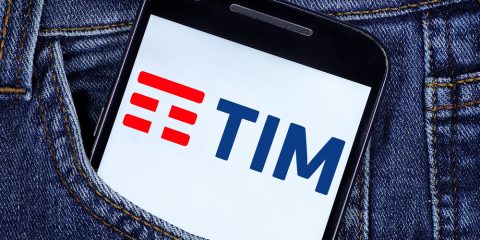In risposta ad una nostra specifica domanda (fatta pervenire alla Commissione lo scorso 11 febbraio e riportata in basso), la Vice Presidente Margrethe Vestager ha inequivocabilmente chiarito il significato della sua risposta all’interrogazione di Antonius Manders, europarlamentare olandese del PPE, che sollevava preoccupazioni circa i rischi, da un punto di vista di concorrenza, dell’eventuale integrazione fra TIM e Open Fiber per la creazione della Rete unica di telecomunicazioni a livello nazionale.
Cosa ha risposto Margrethe Vestager a Key4biz
Nella risposta, inviataci il giorno dopo, il 12 febbraio scorso, la Commissaria Margrethe Vestager ribadisce che l’operazione, qualora avesse dimensione europea, dovrebbe essere notificata alla Commissione Europea e valutata secondo le norme europee sulla concorrenza applicabili (in particolare il Regolamento sulle concentrazioni) e che la stessa Commissione attribuisce grande importanza alla tutela della concorrenza nel settore delle telecomunicazioni, riconoscendone il ruolo fondamentale per lo sviluppo di reti avanzate in fibra e wireless.
L’articolo 80 del Codice
Inoltre, nella risposta all’europarlamentare Antonius Manders, era contenuto un riferimento all’Art. 80 del nuovo Codice europeo delle comunicazioni elettroniche sul regime regolamentare applicabile agli operatori wholesale-only, che ha dato vita (a giudicare da quanto riportato da parte dei media italiani) ad interpretazioni lontane dalla realtà. La Commissaria Vestager aveva infatti indicato che tale Art. 80, nel riconoscere un regime regolamentare di favore agli operatori wholesale-only, non rappresenterebbe di per sé un divieto di integrazione verticale.
Nessun “via libera”
Contrariamente a quanto riportato con sospetto eccesso di euforia da alcuni importanti quotidiani nazionali, che hanno parlato di “via libera” di Bruxelles alla Rete unica, la Commissaria Margrethe Vestager ha precisato, in risposta alla nostra domanda, che tale considerazione non era riferita al caso di specie (ovvero alla vicenda TIM-Open Fiber) e che, peraltro, la stessa rilevanza dell’Art. 80 in questo contesto sia tutta da stabilirsi. Infatti, come indicato in risposta sia all’interrogazione di Antonius Manders che alla nostra domanda, non è possibile per la Commissione Europea anticipare un giudizio sull’operazione, a maggior ragione non essendone noti i contorni.
Concorrenza e regolamenti
La Commissaria Vestager ha quindi precisato che l’operazione dovrà essere valutata sotto due punti di vista. Il primo è quello concorrenziale, per il quale la Commissione sta seguendo attentamente gli sviluppi della vicenda TIM-Open Fiber. Il secondo è quello regolamentare, a proposito del quale Margrethe Vestager ha ricordato che il nuovo Codice Europeo, che avrebbe dovuto essere recepito a livello nazionale entro lo scorso 21 dicembre, ha l’obiettivo di assicurare che i mercati delle telecomunicazioni forniscano a cittadini e aziende i benefici a) della concorrenza, b) di una maggiore scelta, c) di prezzi convenienti e d) l’accesso a reti e servizi ad altissima capacità. Che l’eliminazione della concorrenza, a vantaggio della creazione di una Rete unica nazionale, sia in grado di offrire tutto questo appare quantomeno paradossale.
Vale infatti la pena ricordare che lo scorso 18 settembre la Commissaria Vestager dichiarò inequivocabilmente che se è ben possibile immaginare un unico provider nazionale a livello wholesale, questo dovrebbe però essere indipendente da legami con operatori attivi sul mercato retail.
In conclusione, Vestager ha dato tutto tranne che un “via libera” alla Rete unica, limitandosi a ricordare il riserbo che la Commissione è obbligata a mantenere su un’operazione non ancora notificata e i principi del diritto europeo applicabile.
Di seguito il testo della risposta di Vestager alla nostra domanda ricevuta venerdì 12 febbraio alle 21:12:
Dear Raffaele,
With respect to your question below, please see our statement.
On the record:
• In her reply to the MEP’s question with respect to a possible merger of TIM and Open Fiber, EVP Vestager clarifies that there are two elements to look at when assessing the possible transaction: (a) the competition aspects and (b) the regulatory aspects.
• From the competition aspect, the Commission is following the developments closely. More specifically, this transaction has not been notified to the Commission and it is always up to the companies to notify
a transaction to the Commission, if it has an EU dimension. At this stage, we cannot make any comment on the substantive assessment of the potential transaction, including the impact of the possible elimination of competition and vertical integration between the parties.
• Separately, and from a regulatory perspective, a possible transaction would have to respect the principles laid out in the regulatory framework for electronic communications, in particular the European Electronic Communications Code (EECC) that Member States had to transpose into national law by 21 December 2020. The EU regulatory framework is aimed at ensuring that EU telecoms markets give consumers and businesses the benefits of competition, increased choice, affordable prices, and access to very high capacity networks and innovative services. The EECC includes specific provisions for genuine ‘wholesale only’ network operators.
• EVP Vestager’s reference to Article 80 of the EECC was not specific to the this possible transaction, as is it not possible at this stage to determine whether this provision may have a relevance. In general, as she pointed out, under Article 80 of the Code, National Regulatory Authorities may impose lighter regulation on undertakings with significant market power if these are active only on the wholesale market and the strict conditions provided for in the article are met. The Commission verify the assessment of the National Regulatory Authoritiesunder the procedure laid down in article 32 of the CODE.
Maria TSONI
Press Officer for Competition and Eurostat
European Commission
Spokesperson’s Service
La domanda di Key4biz inviata a Bruxelles l’11 febbraio alle 15:59:
This morning major Italian newspapers have interpreted the answer of European Vice President Margrethe Vestager to the written question submitted by MEP Antonius Manders (EPP) on possible anti-competitive developments in the Italian telecom market in case of a merger between the national incumbent TIM and its main infrastructural competitor, the wholesale-only Open Fiber, as a confirmation that such merger would not be against the EU law.
While in her answer EVP Margrethe Vestager reiterated that a potential merger would have to be notified to the European Commission and assessed under the EU Merger Regulation, should it have a European dimension, she added that Art. 80 EECC would not prevent a vertical integration as such, without specifically referring to the case at stake.
However, on 18 September 2020 she declared that it would be possible to imagine a single wholesaler at national level, but the Commission would have to assess whether such wholesaler is independent, having no vertical ties with retailers.
Considering that it appears that TIM wishes to maintain a majority stake in the new single entity and that its creation would mean the merger between the two largest infrastructural operators in Italy by far, would you confirm that the interpretation made by some of the main Italian newspapers of EVP Margrethe Vestager’s answer is correct?
Moreover, could you clarify the reference to Art. 80 EECC, an article dedicated to the regulatory relief granted to wholesale-only operators, since MEP Antonius Manders did not mention such provision in his question, nor does it seem to be central in this context?
Yours Faithfully
Raffaele Barberio
Editor in Chief
Key4biz
- La risposta in PDF della Commissione Europea a Key4biz del 12 febbraio
- La lettera in PDF inviata alla Commissione Europea da Key4biz l’11 febbraio










